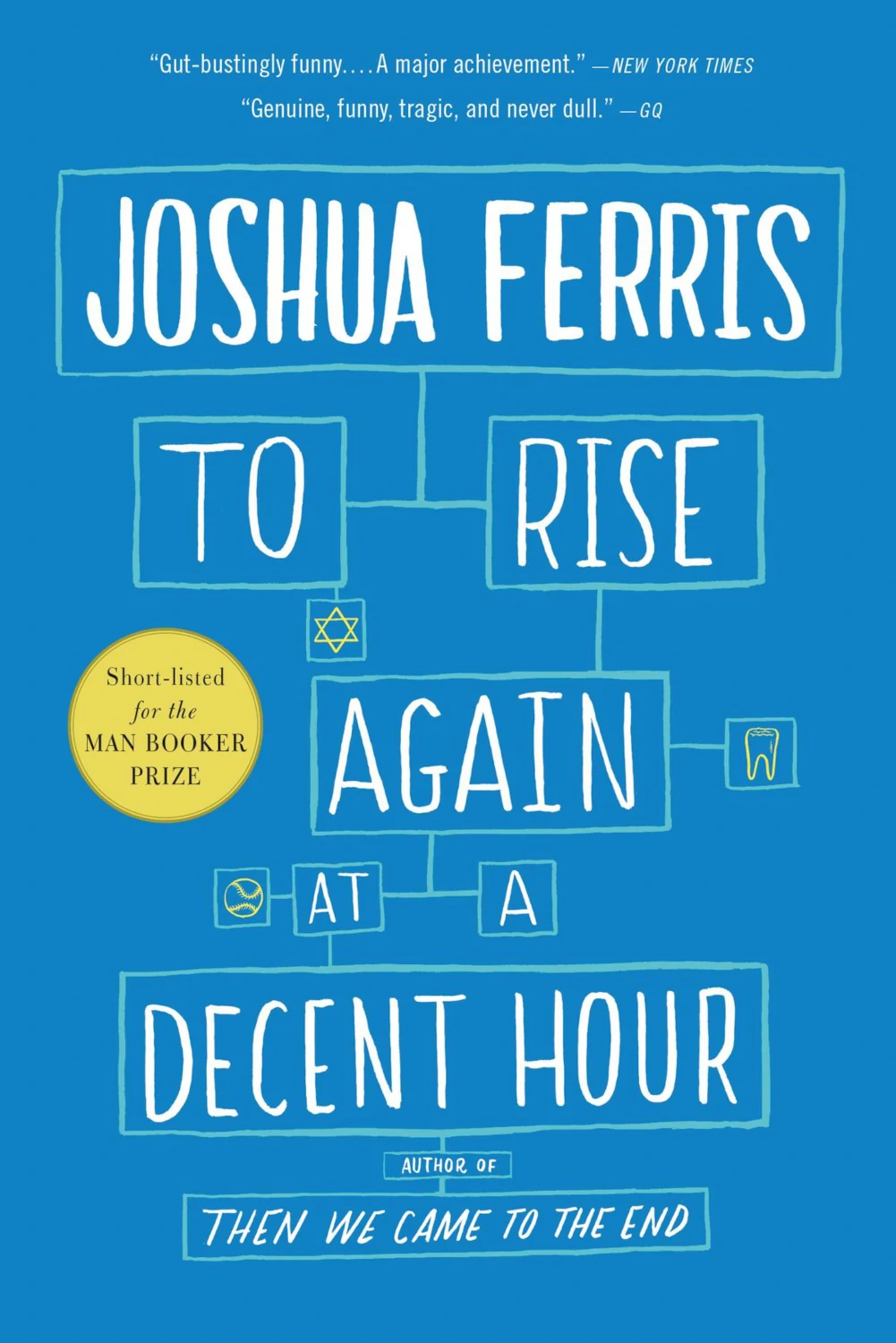
Book Review: To Rise Again at a Decent Hour – Joshua Ferris
Words By Colin Griffith
Please note that this interview was originally published on our old website in 2015, before our parent nonprofit—then called Tethered by Letters (TBL)—had rebranded as Brink Literacy Project. In the interests of accuracy we have retained the original wording of the review.
Paul O’Rourke is a jerk. Well, probably. It’s hard to tell. He’s pretentious, hypocritical, cynical. A thirty-something dentist, he’s professionally stable but personally dysfunctional. He’s good at his job and has plenty of money, but nothing to spend it on. His life is together, but broken. He has everything but feels like no one.
Dr. O’Rourke is the main character and narrator of Joshua Ferris’ new novel, To Rise Again at a Decent Hour. It’s a moving, often painful piece of character work whose plot stretches upward like so much scaffolding on an unfinished building. The story follows the New York dentist through a strange period of his life. Amid a flourishing dental practice and a struggling personal life, someone begins to impersonate Paul on the Internet. A new website appears for his practice, someone posts under his name on the Red Sox forums he frequents, and he suddenly has a strong presence on the social media platforms he despises. Worse, the posts carry a decidedly religious undertone, despite Paul’s aggressive atheism. He goes from anonymous miser to Internet apostle.
What follows is a series of personal trials as Paul tries desperately to reclaim his identity. He is ultimately led to an obscure ethnic group, a scattered people whose existence is denied by historians and Wikipedia scholars. To Paul, this feels both ridiculous and somehow fitting: he denies any involvement with any religiously inclined group, but is drawn by the reported historical alienation of this growing sect.
This kind of layered, multifaceted characterization is by far the strongest aspect of Ferris’ novel. In terms of conventional plot, To Rise Again is rather muddy, at turns underdeveloped and unremarkable. The idea of a scattered people obscured by history is fascinating, but we’re treated to a few too many anthropology lessons along the way. The novel’s highest points come at the quietest moments: a conversation with an ex-girlfriend’s Jewish uncle, a memory of a father’s suicide, a lonely night on a Brooklyn balcony. All are detailed in a cutting, often sarcastic prose that is sometimes harsh but always honest.
Strangely, though, to criticize plot in To Rise Again almost feels like missing the point. Even when he seems to drop the thread and run in the other direction, we always have the sense that Ferris is guiding his narrator somewhere meaningful. Paul is at once perfectly unique and entirely average. Though his circumstances are extreme, we identify with him because his personal struggle is so precisely common. He’s an asshole who can’t connect with anyone, but we always wonder which of those problems came first. Even his devout fandom of the Boston Red Sox (not an easy lifestyle in New York City) feels like a symptom created by Paul himself to give meaning to the sense of alienation that pervades his life. People move in and out of his life like characters on a storyboard, pasted over a blank memory. His greatest friend is his own loneliness.
This kind of bleak, stuck-in-his-own-head characterization could easily become tiring if not for Ferris’ relentless sense of humor. For all its musings on alienation and existential despair, To Rise Again is consistently funny in a way that is both totally natural and entirely unexpected. Paul’s inner monologue is simultaneously wretched and reflexively sarcastic, full of self-deprecating quips and curmudgeonly observations. Even in its dreariest moments of reflection, Ferris keeps his novel twitching with self-conscious wit that rarely feels flippant or mean. It’s a necessary element of a novel that might otherwise be uselessly depressing.
Ultimately, To Rise Again at a Decent Hour succeeds in spite of its utter lack of formal plot structure, bolstered by the utter humanity of its narrator. Amazingly, Ferris finds a way to end his novel that doesn’t feel preachy or sanctimonious, a rare feat for a work that deals with such troubled emotional waters. To Rise Again feels both deeply specific and purposefully universal, a sharp commentary on the ills of modernity and the ease with which a person can become lost in the mire of anonymity. There is no reward for existence, and meaning is fleeting at best. But maybe, Ferris suggests, that’s not such an awful thought after all.